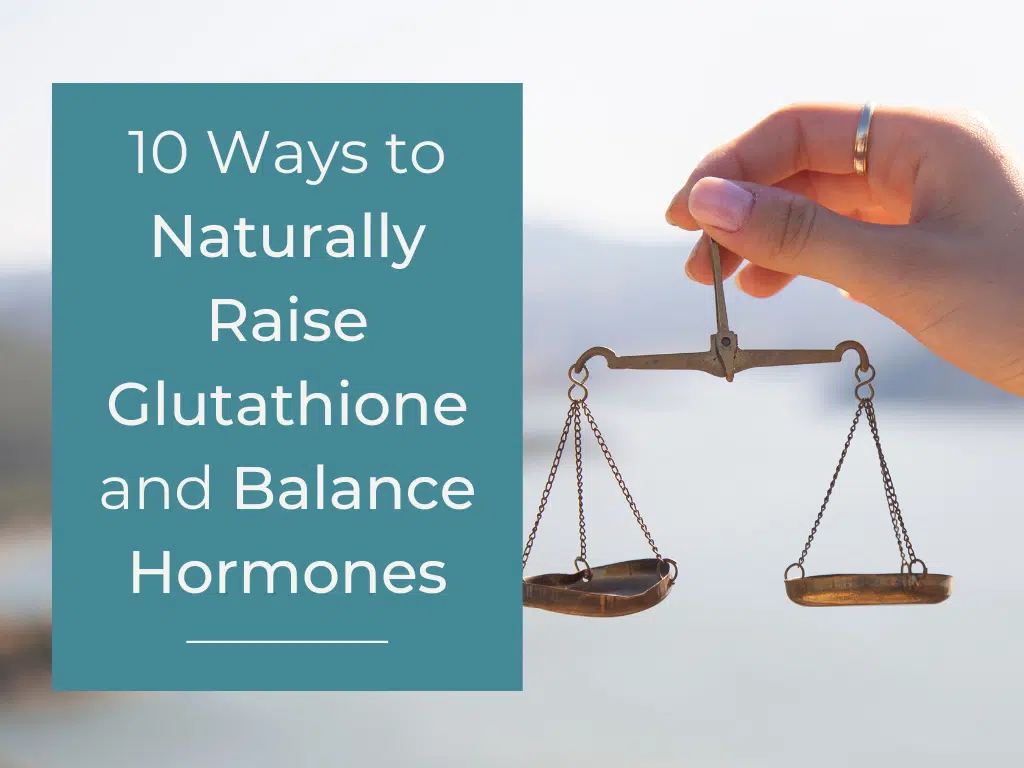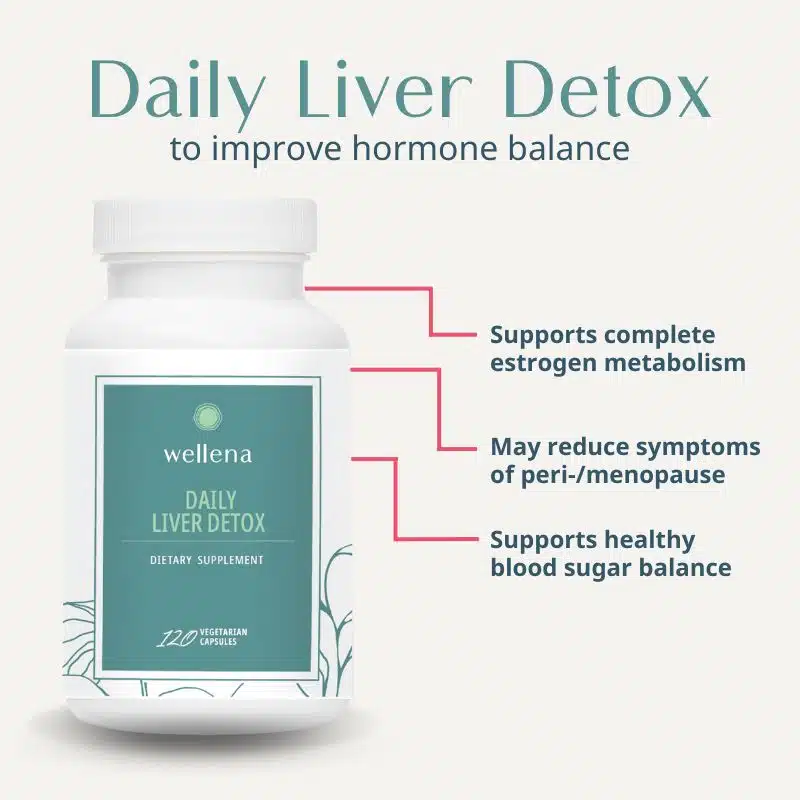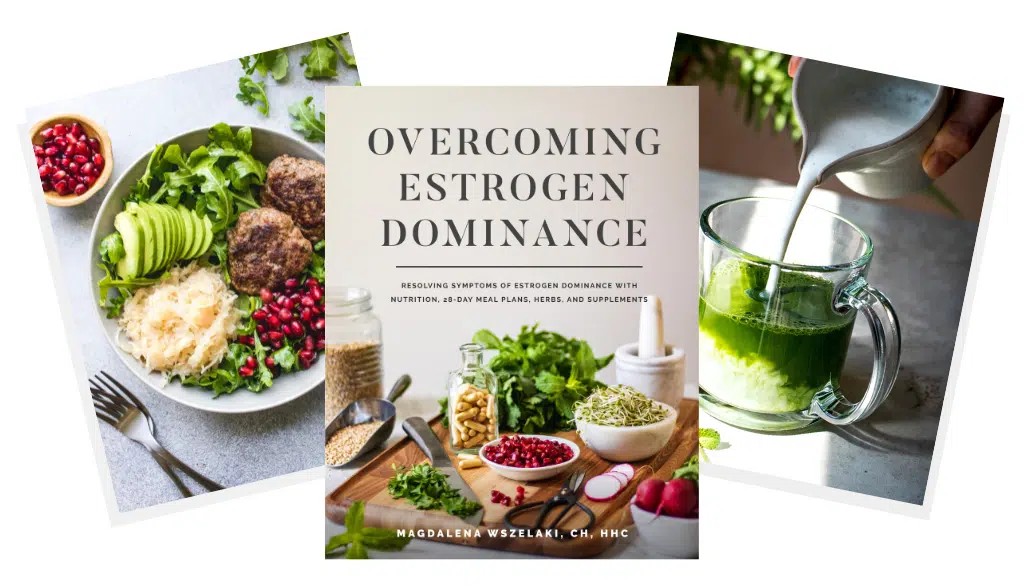
You may have heard of glutathione, the master detoxifier. A fun way to understand it is to see glutathione as a bunch of Pac-Man chomping away the toxic debris in our body.
Glutathione is found in every cell in the body and plays a critical role in many physiological processes.
6 Reasons Why You May Want to Increase Glutathione in the Body
The main roles of glutathione in the human body include:
Antioxidant function: Glutathione acts as a scavenger of harmful free radicals and peroxides, which are molecules that can damage cells and contribute to aging and disease. Cell damage is one of the underlying causes of breast cancer.
Detoxification: Glutathione helps to detoxify the body by binding to and neutralizing toxins and pollutants, including heavy metals such as lead and mercury. It also helps to break down and excrete harmful compounds such as drugs and pesticides.
Immune system support: Glutathione plays an important role in the immune system by helping to protect white blood cells, which are the cells that fight infection and disease.
Eye health: Glutathione is essential for maintaining proper eye health, it helps protect against cataracts and age-related macular degeneration.
Skin health: Glutathione can help to maintain skin health by protecting against sun damage, preventing wrinkles and age spots, and promoting collagen production.
Brain health: Glutathione is also important for maintaining proper brain function, it helps protect neurons and support neurotransmitter function.
But wait, there is more… Glutathione also helps in hormonal balance, this is how.
- Glutathione is involved in the production of hormones such as estrogen, progesterone and testosterone. It acts as a cofactor for the enzyme that converts cholesterol to pregnenolone, the precursor of all steroid hormones.
- Glutathione also helps to detoxify hormones such as estrogen, which can become harmful if they are not properly metabolized – we call them “dirty” estrogens. Estrogen can become harmful when it is not broken down in the liver and instead gets reabsorbed into the bloodstream, leading to an excess of estrogen. Glutathione helps to detoxify these hormones by conjugating them so they can be excreted from the body.
- Glutathione also has been found to improve insulin sensitivity and glucose metabolism, which is important in eliminating cravings, mood swings, weight yo-yos, and sleep issues.
- It also plays a role in the regulation of the thyroid hormones which are key regulating the metabolism and energy levels.
See medical citations below.
10 Ways to Naturally Raise Glutathione
I hope you now have even more appreciation for glutathione, the master detoxifier (and so much more!). Here are things that will help you produce your own glutathione and how it may help you balance your hormones:
- Sulfur-rich foods such as garlic, onions, cruciferous vegetables (broccoli, cauliflower, etc.), and grass-fed meats.
- Antioxidant-rich fruits and vegetables, such as avocados, and berries.
- Physical activity and movement have been shown to increase glutathione levels.
- N-acetylcysteine (NAC) and alpha-lipoic acid (ALA), have shown to significantly boost glutathione.
- Getting enough sleep and managing stress.
- Probiotics can help improve gut health and support glutathione production.
- Herbs and spices like turmeric, ginger and curry which contain anti-inflammatory compounds that can help boost glutathione levels.
- Selenium-rich foods such as Brazil nuts, seafood and mushrooms, which help support the activity of glutathione peroxidase, an enzyme that utilizes glutathione.
- Green tea, which is rich in catechins, antioxidants that may help boost glutathione levels.
- Vitamin C and Vitamin E can help boost glutathione levels by protecting it from oxidative damage.
If you feel like you need that extra support and your liver and hormones are stills struggling, consider getting a standardized (it means guaranteed to contain a therapeutic dose) supplement that contains the key players in creating glutathione.
Why Not Just Take Glutathione?
The major challenge with glutathione supplementation is that it is not very effective. Glutathione is quickly broken down in the digestive tract, which makes it very difficult for it to be absorbed in the body, making it largely ineffective. Unlike NAC (its precursor), glutathione supplements also tend to be very expensive. This is why Daily Liver Detox contains NAC (and a few supporting compounds).
FOUR Glutathione-Forming Ingredients in ONE
There is a synergy between NAC, milk thistle, alpha-lipoic acid, and selenium in producing glutathione – these nutrients work together to increase the rate of production of the antioxidant glutathione.
NAC (N-acetyl-cysteine): Increases intracellular levels of glutathione.
Milk thistle: Contains silymarin, which helps to detox, protect the liver, and boost glutathione production.
Alpha-lipoic acid: Protects glutathione from damage and regenerates it when it has been used up.
Selenium: Necessary for the production of glutathione and other antioxidants.
Together, these nutrients work together to increase the production of glutathione, providing greater protection from oxidative stress. They can be found in our Daily Liver Detox formula.
Learn more with Overcoming Estrogen Dominance
“The body has an amazing ability to heal. We just need to give it the right resources.”
In Overcoming Estrogen Dominance, my goal is to empower and give you the tools to take control of your hormones and health.
More than 70% of women experience estrogen dominance. The symptoms range from lumpy and fibrocystic breasts to thyroid nodules, hot flashes, fibroids, uterine polyps, painful, heavy or irregular periods to infertility and miscarriages, from mood swings to insomnia, weight gain to fatigue.
So many women have experienced the pain and frustration that comes when they feel their symptoms and complaints are dismissed or minimized. This is particularly true for women who are experiencing the symptoms of hormone imbalance. Even when doctors do offer treatment, it’s typically in the form of prescription medication or invasive surgical procedures.
In Overcoming Estrogen Dominance, I hope to show that those extreme interventions are often unnecessary, and to give women a roadmap to reverse estrogen dominance using food, herbs, supplements and natural protocols to rebalance hormones.
To get your copy of Overcoming Estrogen Dominance, go here.
Resources
- Qu J, Liu H, Li C, Wang Y, Zhang W, Ma X, Li X, Zhang S, Zhang J, Wang D. Glutathione in sex hormones regulation. Exp Ther Med. 2019; 18(4): 3698-3702.
- Tran C, Nguyen A, Liu G, Guerrero-Analco J, Liu F, Kerr K, Hoang M, Qian Y. Glutathione and Glutathione Disulfide in the Hypothalamic-Pituitary-Gonadal (HPG) Axis. Molecules. 2019; 24(11): 2058.
- Johnson E, Patel H, Cheung H, Yano H, Cowan E, Kowal C. Glutathione as a Modulator of Insulin Signaling and Glucose Metabolism. Frontiers in Physiology. 2018; 9(MAY): 691.
- Caballero-Villalba J, Durán-Roldán M, Retzler C, Páez-González Y, Cepeda-Heinonen V, Hernández-Morales MM, Ruiz-Romo G, Rojas-Contreras J. Role of Glutathione Associated with Thyroid Hormones Ho1. Eating Foods High in Sulfur-Containing Amino Acids: Bartosz, Magdalena, et al. “Dietary Intake of Methionine and Cysteine and Risk of Stroke.” European Journal of Epidemiology, vol. 32, no. 1, 2017, pp. 43–51., doi:10.1007/s10654-016-0214-7.
- Consuming Antioxidant-Rich Foods: Park, SUN U. “Fruit and Vegetable Intake and the Risk of Cardiovascular Disease: A Meta-Analysis.” Korean Journal of Family Medicine, vol. 37, no. 8, 2016, pp. 431–439., doi:10.4082/kjfm.2016.37.8.431.
- Exercising Regularly: Zajac, Alan, et al. “Exercise-Induced Changes in Skeletal Muscle Antioxidant Capacity: A Review.” Oxidative Medicine and Cellular Longevity, vol. 2018, 2018, pp. 1–7., doi:10.1155/2018/4147385.
- Taking Supplements: Farajian-Mashhadi, Raheleh, et al. “The Effects of N-Acetyl-Cysteine Supplementation on Glutathione and Oxidative Stress Markers in Diabetics: A Systematic Review and Meta-Analysis.” Indian Journal of Endocrinology and Metabolism, vol. 20, no. 3, 2016, pp. 262–269., doi:10.4103/2230-8210.181422.
- Getting Enough Sleep and Managing Stress: Huynh, Ngoc T., et al. “Sleep Quality & Cardiovascular Disease Risk: A Systematic Review & Meta-Analysis.” BMJ Open, vol. 5, no. 6, 2015., doi:10.1136/bmjopen-2015-007783.
- Consuming Probiotics: Zhang, Li-Qun, et al. “Probiotics and Their Fermented Food Products Are Beneficial for Health.” Critical Reviews in Food Science and Nutrition, vol. 53, no. 7, 2013, pp. 675–685., doi:10.1080/10408398.2011.556759.
- Incorporating Herbs and Spices: Dhawan, Manmeet, et al. “Turmeric (Curcuma Longa): A Spice with Medicinal Properties.” Indian Journal of Experimental Biology, vol. 50, no. 11, 2012, pp. 852–862., doi:10.4103/0974-8369.109495.
- Incorporating Selenium-Rich Foods: Whitfield, J., et al. “Selenium and Selenoproteins in the Immune System.” Biological Trace Element Research, vol. 150, no. 1–3, 2012, pp. 34–44., doi:10.1007/s12011-012-9324-1.
- Drinking Green Tea: Wu, Jia-Yi, et al. “The Antioxidant and Anti-Inflammatory Properties of Catechins.” International Journal of Molecular Sciences, vol. 13, no. 10, 2012, pp. 12479–12496., doi:10.3390/ijms131012479.
- Incorporating Other Antioxidants: Rosso, Gilmar, et al. “Antioxidants and Their Role in Human Health.” InTech, 2012., doi:10.5772/51251.meostasis: Systematic Review. Nutrients. 2018; 10(5):539.

